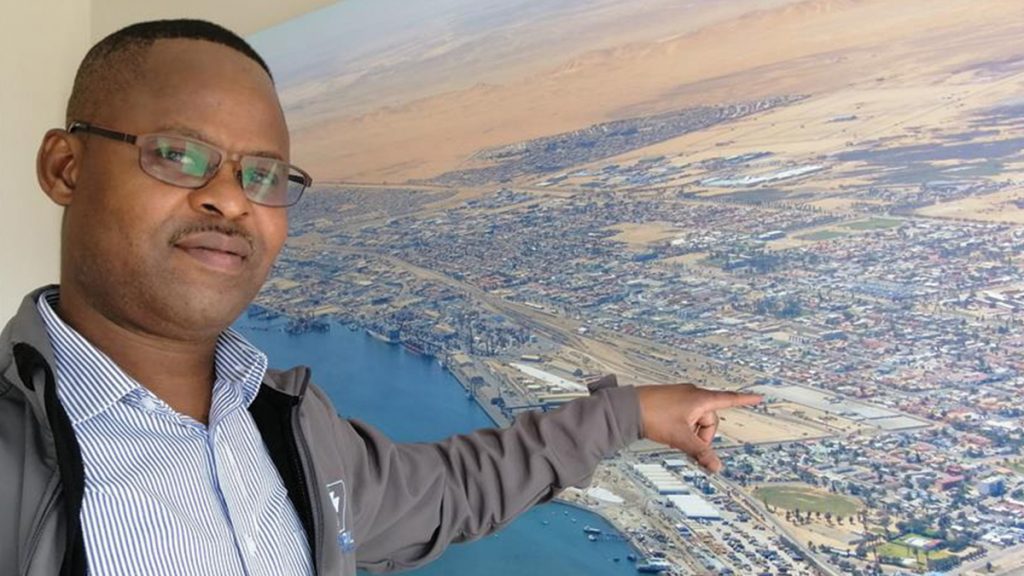- Provides opportunities to make Botswana a logistics hub
- Group to connect Botswana with Brazil sugar industry
- Botswana Dry Port in Namibia boost trade facilitation
BAKANG TIRO
editors@thepatriot.co.bw
The giant Namibian diversified company, Walvis Bay Corridors Group, has continued with its commitment to unlock economic growth in the SADC region connecting Botswana to global markets.
The Walvis Bay Corridors are an integrated system of well-maintained tarred roads and rail networks accommodating all modes of transport from the Port of Walvis Bay via the Trans Kalahari, Walvis Bay- Ndola- Lumbubashi Corridor, Trans Cunene and Trans Oranje corridors providing landlocked SADC countries with access to the global market.
The group executives this week hosted a business information sharing seminar with business leaders and government officials from the Ministry of Transport and Communications in Gaborone.
Mbahupu Hippy Tjivikua, the Chief Executive Officer (CEO) of Walvis Bay Corridors Group, said Botswana has strong potential to be a leading global player by doing trade through the corridors.
He noted that the Trans Kalahari Corridor (TKC) and Botswana Dry Port in Namibia are strategic.
“Namibia and Botswana should trade more due to the advantages of the TKC and Botswana’s dry port and Walvis Bay Port as well. Our mandate is to exploit Botswana to the global market through the facilitation of trade using our logistics hub. The delay of any cargo due to logistical glitches is loss of revenue for the state as well as the businesses. Botswana is strategic,” he said.
The Group indicated that it has already met with the Khoemacau Copper Mine officials in its bid to have the company exporting copper through the Walvis Bay Corridors and TKC effectively.
Business Development Manager at the Group, Irvaan Maharaj, said they also target to link Botswana to Brazil, particularly to have her tap into the rich Brazil’s sugar industry.
According to him, Brazil could export sugar to Botswana through the Trans Kalahari Corridor.
“The trade facilitation of sugar will be exported to Gaborone and Francistown with players in Botswana’s sugar industry getting the benefits for the expansion as well as networking too. A country such as Singapore doesn’t have minerals but it is a leading global economic hub due to transport and logistics. Botswana and Namibia have advantages of the corridors to grow,” he said.
The Permanent Secretary in the Ministry of Transport and Communications, Jimmy Opelo, said government is committed to utilize the corridors as gateway to export trade facilitation. Opelo said Botswana is grateful to Namibia for having allocated land for the building of dry port. He indicated that the dry port is strategically positioning Botswana to be the logistical hub as well.
Sea Rail Botswana
The acting Managing Director of Sea Rail Botswana, Derrick Mokgatle, said Botswana Dry Port in Namibia has made trade facilitation easier as it receiving cargo coming from the East. He said at the moment, the cargo volumes processed at the Botswana dry port are still very low.
“The volumes are expected to turnaround due to some of the expansion projects at the port that are underway. We anticipate to see the copper from Khoemacau mine also transported through the port. There are opportunities from the port and it is very effective. Business cannot lose revenues as it has been the case before as a result of delays in transportation of cargo for trade,” he added.
Botswana Unified Revenue Service (BURS) Commissioner General Jeannette Makgolo also said the corridors and the dry port have opportunities to generate more revenue for the government. Makgolo said they are in talks with authorities in Namibia to have Mamuno Border Post developed into one stop border post just like the Kazungula Border Post so as to speed up trade facilitation.
Business Botswana
The President of Business Botswana, Gobusamang Keebine, implored governments of Botswana and Namibia to accord the corridors more development by connecting water, internet and network.
He said Botswana and Namibia have small populations, hence the need to grow the industrial base.
“Lack of implementation has been an obstacle to developments. It is important for Botswana and Namibia to empower their citizens and ensure that local business thrives. In the past two years in Botswana there have been more infrastructure projects on the water sector but the tenders were dominated by foreign companies. Local business should be empowered for growth,” he said.
